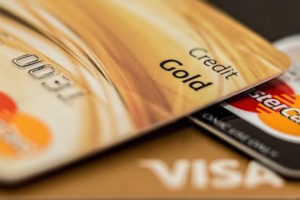Erase Credit Card Debt with Bankruptcy

If so, filing for bankruptcy could be a good option. Here are a few tips to help you understand if you should stop making payments on your credit card debt and file for bankruptcy:
Determine whether you can afford to pay off the debt
If you’re considering bankruptcy, the first step is to determine whether you can afford to pay down or pay off your credit card debt. Based on your income, you may or may not qualify for Chapter 7 bankruptcy, which will completely wipe out your debt. If you have enough income, you may have to file for Chapter 13 bankruptcy and pay off your debt on a repayment plan.
Under these circumstances, you may be able to negotiate with the creditor and pay off your debt for less than you owe. Debt consolidation is another option under these circumstances. If you are truly unable to pay off your credit card debt, then bankruptcy could be the best choice for you.
Assess your interactions with creditors – are you being sued or harassed?
When you stop paying your credit card bill, you will begin to receive calls from the creditor and its agents. The longer you put off your payments, the more frequent and pestering the calls will become. These interactions are often the reason people consider filing for bankruptcy.
Depending on the situation, your creditors may consider bringing a lawsuit against you to force repayment of your debts. If the credit card company prevails in court, you may face garnished wages or loss of assets. Under these circumstances, filing for bankruptcy will help you avoid these outcomes.
Calculate the amount of nonexempt property you own
Depending on your income and assets, Chapter 7 bankruptcy may not be ideal for you. If you own a lot of property, the bankruptcy trustee can sell your assets to pay off your creditors.
Under Chapter 13 bankruptcy, you will keep all of your assets, but will have to pay creditors, the amount equal to the total value of your nonexempt assets.
Be sure to review the bankruptcy exemption laws in your state to decide whether filing for bankruptcy is in your best interest.
Decide whether you should stop making payments.
Generally, you should stop making credit card payments once you have begun the process of filing for bankruptcy. However, if you have not yet decided whether bankruptcy is right for you, continue making payments on your credit card to avoid harassment by creditors and additional damage to your credit.
As always, the bankruptcy attorneys of Burr Law Offices are here to help with any and all of your bankruptcy concerns. Give us a call today.


